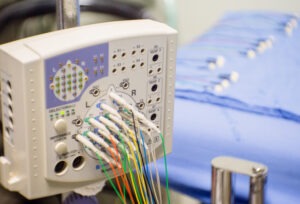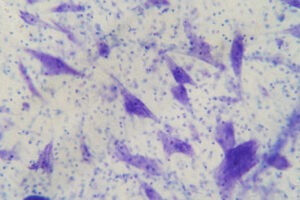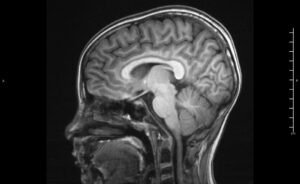- Birth Asphyxia Lawyer
- Birth Injuries Causes
- Birth Injury Symptoms
- Birth Injury Treatment
- Birth Injury Types
- Caput Succedaneum
- Cerebral Palsy
- Childhood Dysarthria
- Cognitive Developmental Disabilities
- Delayed Birth
- Developmental Delays
- Drug Related Negligence
- Epidural Birth Injuries
- Failure to Diagnose
- Failure to Diagnose Gestational Diabetes
- Fetal Lacerations
- Fetal Macrosomia
- Floppy Infant Syndrome
- Folic Acid Deficiency Anemia
- Forceps Delivery Injury
- Horners Syndrome
- Hydrocephalus
- Infant Apraxia
- Infant Arm Bent In Toward Body
- Infant Brain Bleeding
- Infant Brain Hemorrhage
- Infant Brain Ischemia
- Infant Breathlessness Rapid Breathing Grunting
- Infant Broken Bones
- Infant Bruising
- Infant Cephalohematoma
- Infant Cervical Dystonia
- Infant Chorioamnionitis
- Infant Crying Arched Back
- Infant Cystic Fibrosis
- Infant Decline In Breathing Eating Digestion
- Infant Development Delay
- Infant Developmental Abnormalities
- Infant Difficulty Sucking Eating Swallowing
- Infant Dystonia Disorder
- Infant Excessive Drooling
- Infant Favoring One Side of Body
- Infant Feeding Problems
- Infant Resuscitation Errors
- Infant Seizures
- Infant Shoulder Dystocia
- Infant Skull Bulges
- Infant Skull Fractures
- Infant Subconjunctival Hemorrhage
- Infant Torticollis
- Intellectual Disabilities in Babies and Children
- Kernicterus
- Meconium Aspiration Syndrome
- Negligent Doctor and Birth Injuries
- Negligent Hospital Staff or Midwife
- Negligent Nurse and Birth Injuries
- Newborn Hypotonia
- Perinatal Hypoxia
- Persistent Pulmonary Hypertension of the Newborn
- Placenta Previa
- Retinopathy Of Prematurity
- Retinopathy of Prematurity Lawyer
- Twin to Twin Transfusion Syndrome Lawyer
- Umbilical Cord Birth Injury Lawyer
What does It Cost to File a Cerebral Palsy Lawsuit?
It is natural to wonder what the costs associated with filing a cerebral palsy lawsuit are, particularly after your kid...
What Evidence do I Need to File a Cerebral Palsy Claim?
You may want to know what evidence you need if you are filing a cerebral palsy claim. The world feels...
What Is the Process for Filing a Cerebral Palsy Birth Injury Lawsuit?
Navigating the complex process of filing a cerebral palsy birth injury lawsuit requires understanding several key steps. If you wish...
What Is Hypotonia, or Floppy Infant Syndrome?
Hypotonia is a condition where the muscles lack tone. Muscles typically contract slightly, even when relaxed. This contraction makes them...
What Is the Statute of Limitations for Cerebral Palsy Claims?
The statute of limitations for cerebral palsy claims can vary based on the jurisdiction and the circumstances surrounding the case....
What Medical Mistakes Cause Cerebral Palsy?
Cerebral palsy (CP), a neurological disorder affecting movement and posture, can be linked to various medical mistakes during pregnancy, childbirth,...
How Is Cerebral Palsy Diagnosed?
Typically, the cerebral palsy (CP) diagnosis process begins with parents or caregivers noticing developmental concerns in a child, such as...
What Is a Cerebral Palsy Lawsuit?
A cerebral palsy lawsuit is a legal action taken by individuals or families who believe that the condition was caused...
When Should I Hire a Cerebral Palsy Lawyer?
If your child was diagnosed with cerebral palsy, you might have an uncertain journey ahead. However, you don't have to...
What Are the Causes of Cerebral Palsy?
Cerebral palsy (CP) can have various causes, with the common element being damage or abnormalities in the developing brain. While...
Is There a Link Between Premature Birth and Autistic Spectrum Disorder?
Autistic spectrum disorder (ASD), informally known as autism, affects how people perceive the world and socialize with others. It has...
What Is Autistic Spectrum Disorder?
Autistic spectrum disorder (ASD), or autism, is a condition related to the brain that changes how a person perceives sensory...
What are Signs and Symptoms of Hypoxic-Ischemic Encephalopathy (HIE)?
Hypoxic-Ischemic Encephalopathy is a medical emergency usually found in newborns. When doctors miss the signs and symptoms of HIE, babies...
How do Physicians Handle Hypoxic-Ischemic Encephalopathy (HIE)?
Hypoxic-ischemic encephalopathy is an extremely dangerous birth injury caused by a lack of blood or oxygen to the brain. The...
Why Hire a Hypoxic-Ischemic Encephalopathy (HIE) Lawyer?
If your child has suffered from HIE and you believe you have a malpractice claim, should you try to approach...
When Should I Hire A Birth Injury Lawyer?
If you’re seeking help for your child after a birth injury, you may wonder when you should hire a birth...
What Causes Hypoxic-Ischemic Encephalopathy (HIE)?
Hypoxic-Ischemic Encephalopathy, or HIE, is an extremely dangerous birth injury. About 20-50% of cases kill babies. The survivors are often...
What Causes Frog Legs in Babies?
In the "frog leg" position, the baby's knees are bent, and the thighs are splayed apart, creating a wide angle...
What Is Hypoxic-Ischemic Encephalopathy (HIE)?
Hypoxic-Ischemic Encephalopathy, or HIE, is a form of brain damage that happens when the brain cannot get enough oxygen or...
Does High Muscle Tone Always Indicate Cerebral Palsy?
High muscle tone, or hypertonia, is a condition where muscles are stiff and difficult to move. This condition is caused...
What Happens if the Umbilical Cord Breaks During Birth?
During your pregnancy, the umbilical cord serves as a lifeline, providing your baby with vital nutrients and oxygen while deducting...
How Rare Are Umbilical Cord Accidents?
A stillbirth research organization reported that umbilical cord accidents are responsible for about 10 percent of infant deaths. While medical...
Can a Baby Recover from a Brain Bleed?
Yes. After a brain hemorrhage, the majority of full-term newborns do well. The extent of the bleeding and the area...
How Common Is Hemorrhagic Disease of a Newborn?
The Centers for Disease Control and Prevention (CDC) reports that not only is hemorrhagic disease rare in newborns, but it...
How do I Determine if My Baby’s Disability Is Due to a Birth Injury?
Determining if your child's disability resulted from a birth injury before, during, or after childbirth is challenging. Once your child...
How do I Know If My Baby Has Brain Damage?
After birth, it can be challenging to determine if your newborn has a brain injury. A newborn's head is easily...
Can Babies Fully Recover from Birth Asphyxia?
The day your child is born is a joyous occasion. You waited patiently for nine long months, and the moment...
Are All Birth Injuries Caused by Medical Malpractice?
Has your new baby been born with a birth injury in the United States? According to the Birth Injury Guide,...
Is Hemorrhagic Disease of the Newborn Life-Threatening?
Hemorrhagic disease of the newborn is a preventable birth injury that can be life-threatening if not treated within one hour...
What Causes Infant Brain Bleeding?
A brain hemorrhage is a rare but serious medical condition found in newborns. Bleeding in and around your baby’s brain...
- 1
- 2
- 3
- …
- 12
- Next Page »





























